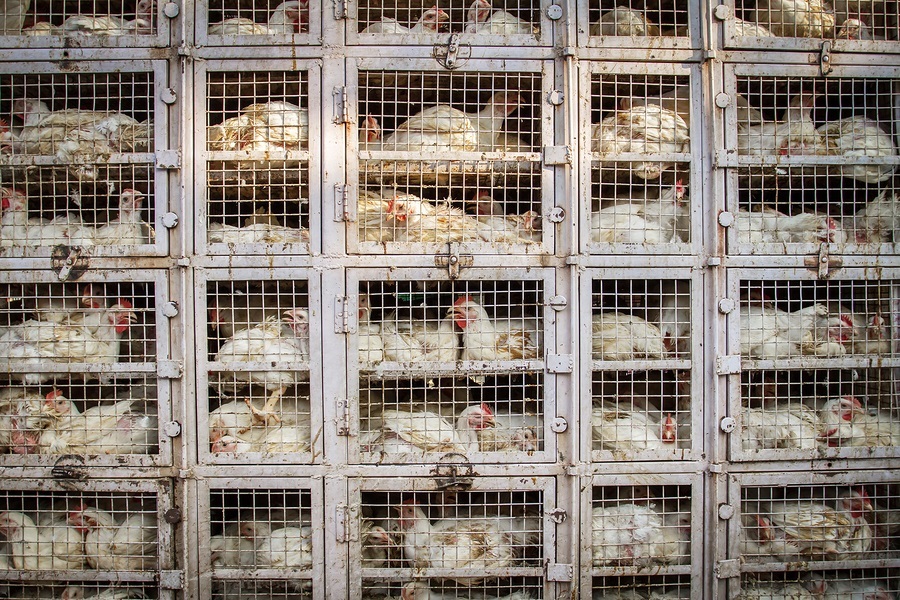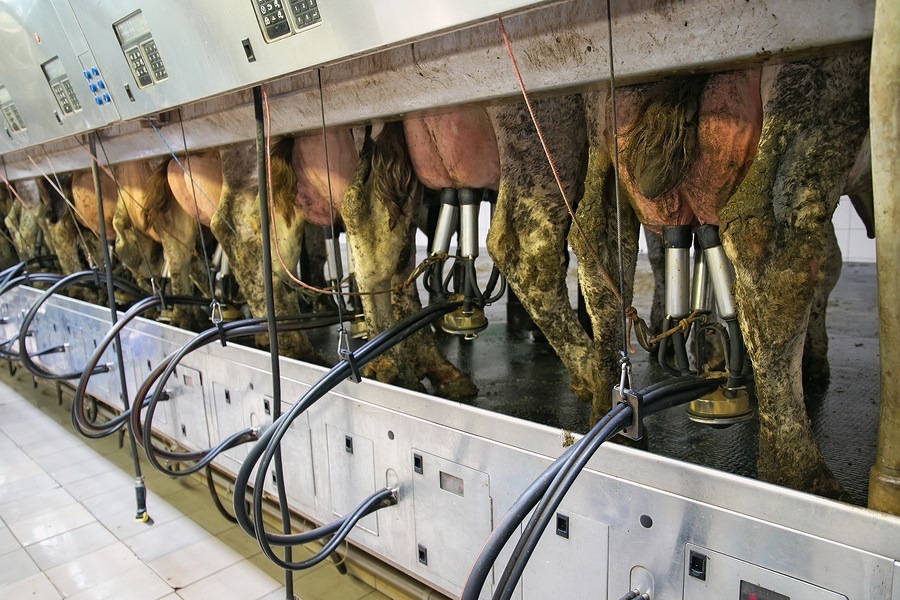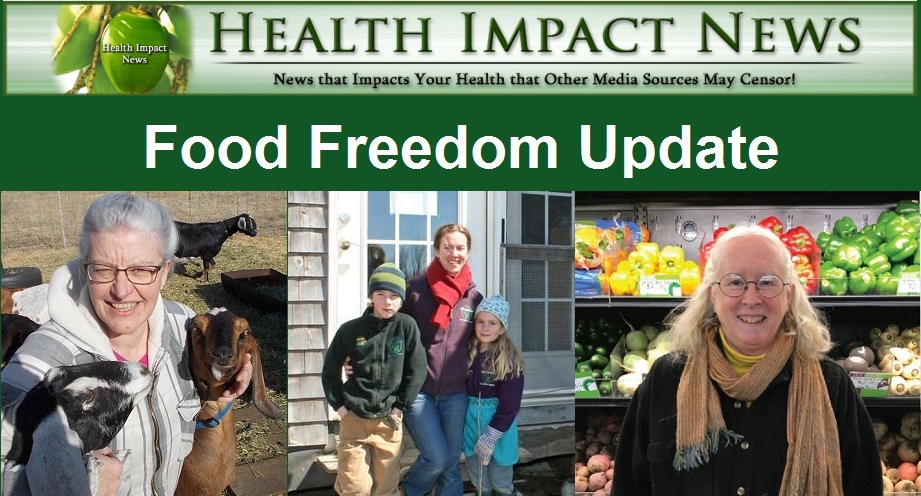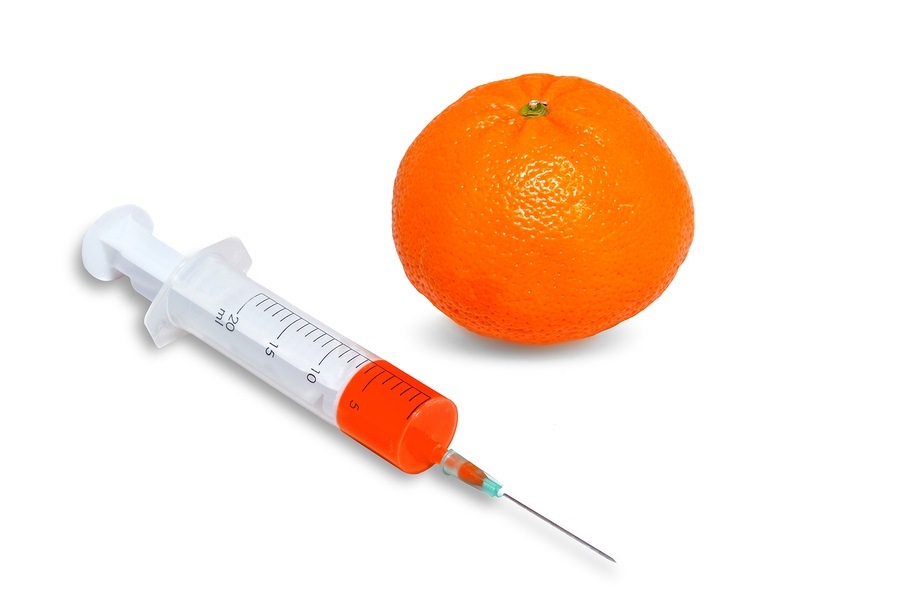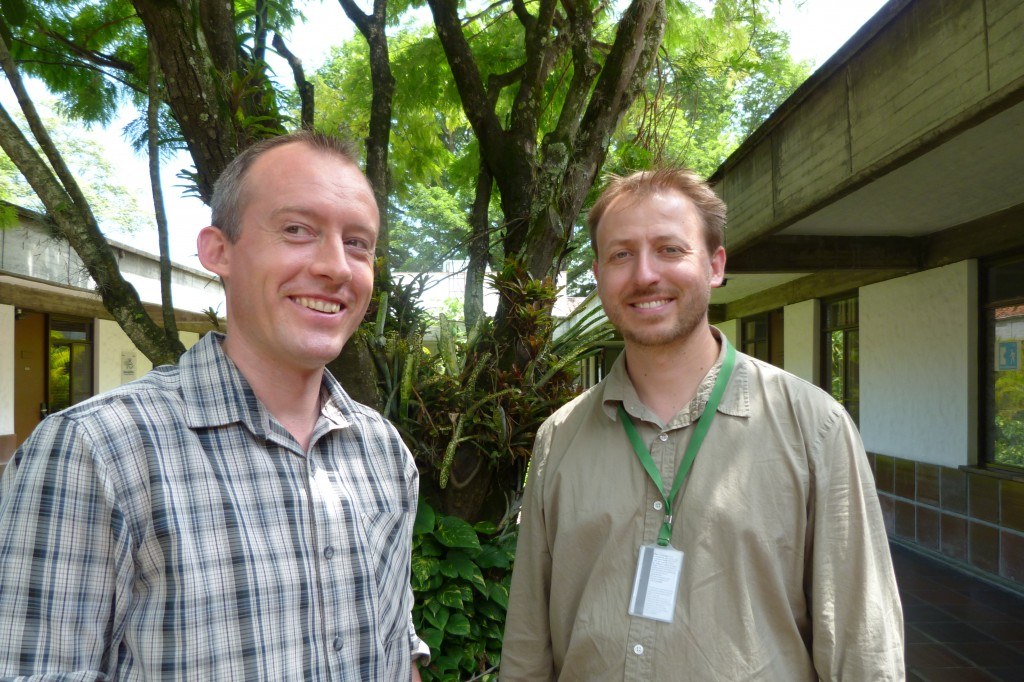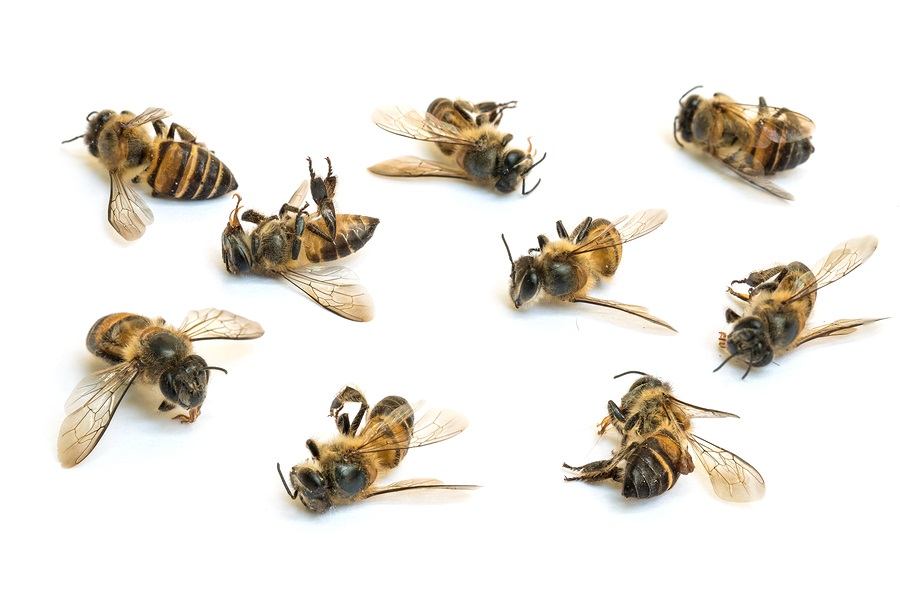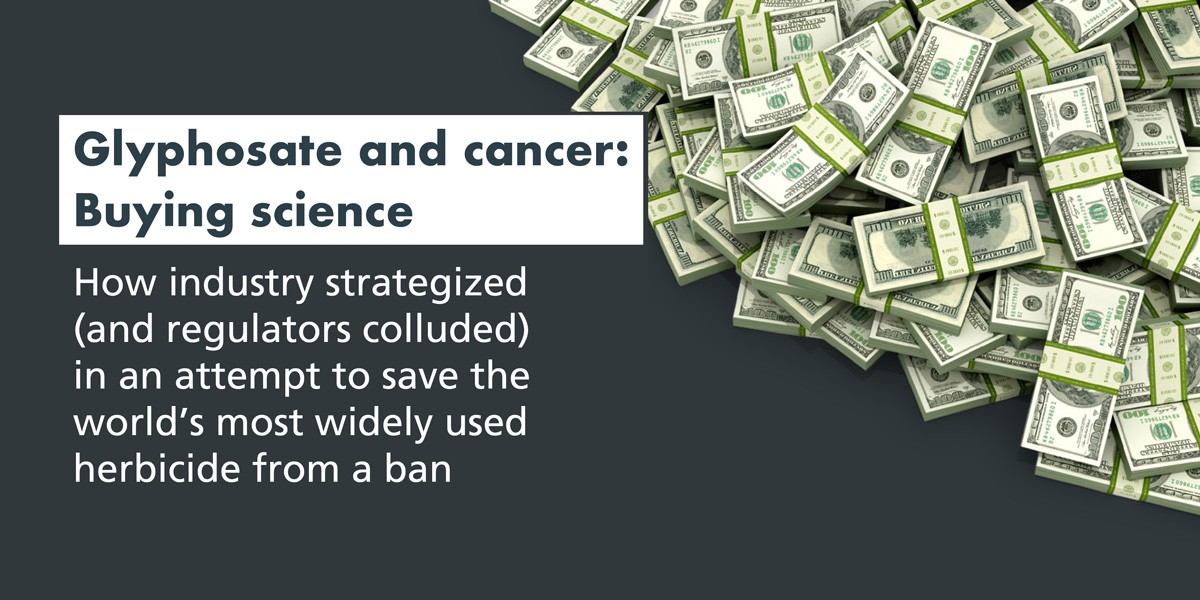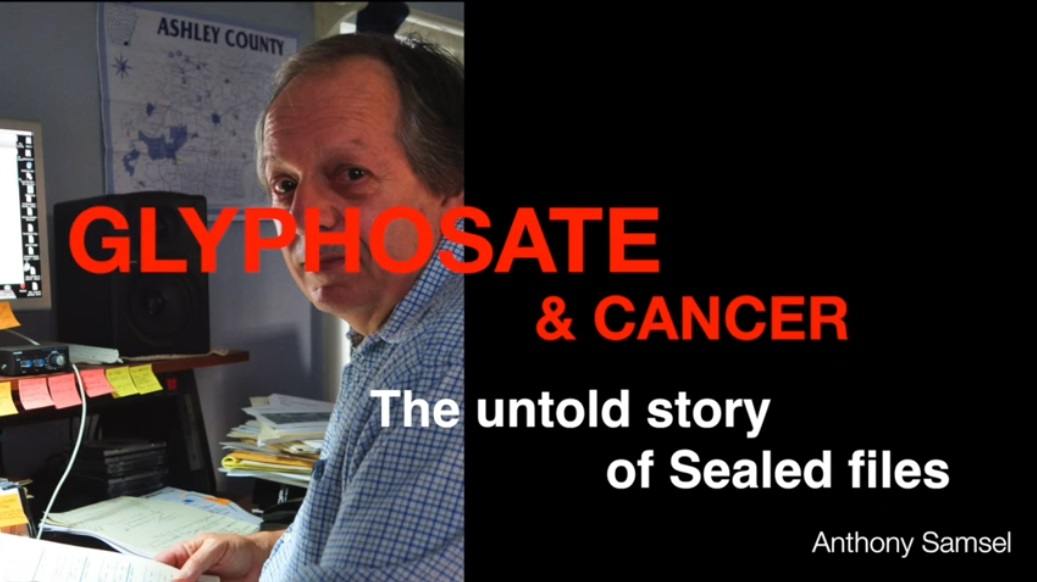News regarding the dangers of GMOs and biotech, and the advantages of organic sustainable agriculture.
Psyche Drugs Found in “Natural” Chicken
If you've never heard about ketamine, you're not alone. Scores of people had never heard the word until Bloomberg broke the story June 22, 2017, revealing that ketamine had shown up in Sanderson Farms' so-called "100 percent natural" chicken. Some who've heard of ketamine may include veterinarians, psychiatrists and people in the club scene who like to walk on the edgy (read: sketchy) side, as ketamine is known for delivering hallucinogenic effects. Testing also revealed other, and some even worse substances, and consumer advocacy groups don't intend to sit still for it. In fact, a new lawsuit has been initiated by consumer advocacy groups due to the company's use of the word "natural" in its advertising. Bloomberg explains: "The consumer groups contend that Sanderson Farms 'doses its chickens' but don't explain why. Ketamine might be used to sedate the animals during transport or before slaughter. The consumer groups want Sanderson to concede it violated false advertising laws and pay for a corrective ad campaign." As Drug.com explains, ketamine (pronounced kee'-ta-meen) is an anesthesia that "works in the brain to inhibit painful sensations." It's prescribed by psychiatrists for depressed patients and by dentists as an anesthetic. Do you want this drug present in your "natural" chicken?
How Organic Is Your Organic Milk?
True organic grass fed milk has been repeatedly shown to be higher in many nutrients, including vitamin E, beta-carotene and beneficial conjugated linoleic acid, but some organic dairies are nothing more than concentrated animal feeding operations (CAFOs) in disguise, selling milk for higher prices while not actually giving you anything that is substantially different from non-organic milk.
Food Freedom Laws Needed to Rebuild Economic Prosperity – Reestablish Relationships between Local Food Producers and Local Consumers
Those of us who seek to restore the old-fashioned practices of food production and distribution in our local communities are concerned about food safety. We are not anti-regulation – we are instead pro-common-sense when it comes to food that is produced and sold locally. We are simply seeking to restore a way of life that has successfully promoted economic vitality, physical health, and a sense of community and belonging that used to characterize America. Such a way of life has been stripped away by mega size grocery stores, corporate dominated agriculture and food processing, and by over-reaching food regulations. The combined effect of these factors is destroying small locally owned businesses and small family farms. These destructive forces are crawling through our country, and are destroying the fabric of community life. The adoption of food freedom laws are one of the positive steps that we can take to rebuild economic prosperity, and reestablish personal relationships between local food producers and local food consumers. This article will examine the food freedom movement and will consider whether the allegations of corporate interests are valid. Should we be free to buy and sell food directly from our neighbors, or will such practices kill us? I am not being overly dramatic with my language here. Allegations against local food freedom advocates are highly charged with emotional rhetoric, and warn of unescapable illness and death.
CRISPR-induced Mutations – What do they Mean for Food Safety?
A new study published in Nature Methods has found that the genome editing technology CRISPR introduced hundreds of unintended mutations into the genome of mice. In the study, the researchers sequenced the entire genome of mice that had undergone CRISPR gene editing to correct a genetic defect. They looked for all mutations, including those that only altered a single nucleotide (DNA base unit). They found that the genomes of two independent gene therapy recipients had sustained more than 1,500 single-nucleotide mutations and more than 100 larger deletions and insertions. None of these DNA mutations were predicted by the computer algorithms (software packages) that are widely used by researchers to screen the genome (the total DNA base unit sequence) of an organism to look for potential off-target effects. While this study was conducted in the arena of gene therapy, it has clear implications for the regulation of food plants and animals derived from CRISPR and other genome editing techniques.
Nevada Takes the Lead: Defies Outdated Federal Law to Begin Cultivating Industrial Hemp
Nevada has made a legal statement many are calling “revolutionary.” It defied the USA federal ban of industrial hemp agriculture with Nevada governor Brian Sandoval’s signing into law SB 396, which was passed overwhelmingly in both the Nevada State Assembly and Senate. This allows Nevada to raise hemp for commercial use, not merely for research, within its borders. Hemp and marijuana are of the same species. They are related. According to George Blankenbaker, president of Realhemp, Inc, hemp is the most misunderstood and underappreciated crop there is in the world. The apparent confusion between marijuana or cannabis and hemp has made growing industrial hemp without THC illegal in the USA only. This demonstrates the incredible nonsensical irony of reluctantly allowing hemp imports from China, Canada, and parts of Europe and elsewhere to be sold anywhere in the USA, but banning them from being grown commercially in the United States.
FREE Online Summit Teaches How to Grow All Your Own Food & Medicine from 38 Experts
On Monday, June 12th at 9:00 a.m. CT, 38+ leading experts will teach you how to become free of supermarkets and drugstores! Watch 100% online from the comfort of home as 38+ real people “living it” reveal their best secrets for growing all your own food and medicine. And be empowered with the practical skills you need to feed and heal your family!
Genetically Modified Moths to be Released in New York State?
Cornell University has applied for a permit to execute the world’s first open-air trial of a genetically engineered diamondback moth (GDM). The purpose of this new GM insect is to reduce pest populations of diamondback moths through engineering a new female lethality trait (female larvae die, and males go on to reproduce until the population is destroyed) into male GDM. Those pushing this new technology have not completed any worldwide assessments of health and environmental safety, and only the most cursory of environmental reviews has been conducted by the USDA’s Animal Plant Health Inspection Service (APHIS). Unless and until all environmental and health impacts have been reviewed, it is reckless to release hundreds of thousands of novel organisms around the citizens and farms of New York State.
One Oregon County Wants to Force Farm to Spray Organic Crops with Toxic Glyphosate Herbicide
Sherman County may be issuing a Court Order on May 22, 2017, to quarantine Azure Farms and possibly to spray the whole farm with poisonous herbicides, contaminating them with Milestone, Escort and Roundup herbicides. This will destroy all the efforts Azure Farms has made for years to produce the very cleanest and healthiest food humanly possible. About 2,000 organic acres would be impacted; that is about 2.8 times the size of the City of London, England, and 1.5 times the size of the city center of Philadelphia that could be sprayed with noxious, toxic, polluting herbicides. The county would then put a lien on the farm to pay for the expense of the labor and chemicals used. Sherman County is changing the interpretation of its statutory code from controlling noxious weeds to eradicating noxious weeds. These weeds include Morning Glory, Canada Thistle, and Whitetop, all of which have been on the farm for many years, but that only toxic chemicals will eradicate.
Big Dairy Continues War Against Farmers and Raw Milk
Increasing numbers of Americans are seeking out unpasteurized, or raw, dairy products — both for the health benefits and the flavor. The U.S. Centers for Disease Control and Prevention (CDC), meanwhile, has released a report that's clearly an attempt to squelch the growing enthusiasm for obtaining farm-fresh foods like raw milk and cheese. The war against raw milk has been one of the most successful, fear-based campaigns ever created to monopolize an industry. As long as farmers are prevented from selling to consumers directly, processors can and do price fix the market, ultimately leading to the intentional destruction of small, family dairy farms and consolidation of CAFO dairy farms using taxpayer-funded subsidies.
Belgium Bans Glyphosate Herbicide Use
A wave of glyphosate bans are being introduced by member states in Europe while the issue of the chemical’s reauthorization at EU level drags on. Among the most dramatic developments has been the announcement by Belgium’s federal minister of agriculture, Willy Borsus, that he wants to ban the sale and use of herbicides by non-professionals. He voiced particular concern over glyphosate. "Considering the risk-benefit balance, there is no justification for the use of herbicides for individuals," Borsus said. He said there were safer alternatives, such as heat treatment, mechanical weeding, or bio-pesticides. Borsus also called for a new investigation into alleged “Monsanto manoeuvres and attempts to influence experts” with the aim of keeping glyphosate on the market.
New Bill Would Allow Farmers To Sue Monsanto If GMO Crops Invade Their Property
A bill introduced into the Oregon legislature would allow non-GMO farmers to sue biotech patent holders over trespass by their GMO crops if their crops were to spread on to their farms. HB 2739 survived a legal hurdle in April, when the bill was referred to the House Rules Committee, which isn’t subject to an April 18 legislative deadline that recently killed other proposals. The move could effectively allow HB 2739 to stay alive through the end of the 2017 legislative session, scheduled to end in late June.
Frankencitrus Coming to a Store Near You?
A new ruling is expected to pave the way for genetically modified citrus to enter your local stores—but a loophole allows the food industry to keep you in the dark about the nature of the fruit you’re purchasing. The trees are treated with a genetically modified virus that makes them resistant to citrus greening disease, which has caused major problems for citrus growers in Florida. But according to the government’s definition, neither the trees nor the fruit will be considered genetically modified (an assertion that is patently absurd), so once again consumers will be in the dark about what kind of food they’ll be eating.
Honest Scientists who Question GMOs are Attacked and Silenced
Numerous new medicines and medical devices have been marketed with claims that declare them to be “safe and effective” – which is a compelling marketing slogan, though devoid of scientific proof. Such claims are facilitated by collusion between the pharmaceutical industry and authoritative government agencies, aided by leading scientists (“key opinion leaders” known within industry as KOLs) and renowned scientific institutions. Internal FDA documents confirm that genetic engineered/modified food products (widely known as GMOs), entered the U.S. food supply without having been subjected to scientifically rigorous safety tests as is mandated by law. GMOs entered the market through the perversion of science, the corruption of government by politically appointed bureaucrats whose allegiance was with industry. (Read AHRP Post How Monsanto Rigged the System through politics and propaganda) In 2003, a congressional committee report, documented political interference and manipulation of scientific research at federal agencies charged with developing science-based public health policies.
GMO Crops, Bee-Killing Insecticides to Be Banned on Boulder County-Owned Land
Boulder County, Colorado will completely phase out genetically modified (GMO) corn and sugar beets, and neonicotinoid insecticides on county-owned land. According to the Daily Camera, commissioners voted 2-1 last week to approve the latest version of a transition plan that bans the cultivation of GMO corn by the end of 2019 and GMO sugar beets by the end of 2021. Neonicotinoids, which have been widely blamed for the declines of bees and other pollinators, will also be phased out within five years on county properties.
85% of All Food in U.S. Now Contaminated: Toxic Pesticides Also Found in Drinking Water
Modern agricultural practices have led to ever-increasing amounts of chemicals being used on our food, and whether we're talking about pesticides, herbicides or fungicides, most have deleterious effects on health. According to the latest report on pesticide residues in food by the U.S. Department of Agriculture (USDA), a mere 15 percent of all the food samples tested in 2015 were free from pesticide residues. In 2014, over 41 percent of samples had no detectable pesticide residues on them. That just goes to show how quickly our food is being poisoned. At that trajectory, we may eventually find out none of the non-organic food sold in 2016 or 2017 was pesticide-free. Recent news has highlighted a number of problems associated with this out-of-control use of agricultural chemicals, starting with atrazine.
Wisconsin Egg Farmers Shipping Eggs Again – For Now
Regulators in Wisconsin have reportedly lifted the "cease and desist" order from a warning sent to Amish Wisconsin egg farmers in March. The 7-year operation where farmers shipped their eggs directly to consumers from their farm was temporarily shut down by an order from the Wisconsin Department of Agriculture from a complaint that allegedly originated from regulators in California. After an outcry from customers and supporters who contacted the governor of Wisconsin and other officials, regulators reportedly told the farmers that they could continue shipping their eggs while they worked with them to bring them into compliance with the alleged violations. The farmers are happy to be able to sell their inventory of eggs again because they would have had to shut down their operation at the end of this week due to the cost of feeding and maintaining their flocks while not being able to sell their eggs. They are not sure yet if any new regulations or requirements placed on them will become a burden too costly to allow their operation to continue, so it is uncertain at this time if their 7-year direct-to-consumer egg operation will continue to operate into the foreseeable future. For now, customers can order the eggs from the Healthy Traditions' website. Meanwhile, there is more evidence that the State of California was behind this action, as they recently sent a "cease and desist" order to Tropical Traditions regarding the sale and shipping of eggs.
The War Against Small Family Farms in the U.S.
Both the USDA and FDA seem to focus on protecting factory farming and all the industries that contribute to BigAg and Big Dairy from competition by smaller healthier operations. They do this by enforcing regulations meant for factory farms and CAFOs (Confined Animal Feeding Operations), which by their very vastness and economics need to be regulated since they are breeding grounds for disease. This holds true for foods that most urban shoppers take for granted, eggs and milk. Using the cover of "protecting human health," these agencies force operations to protect against foodborne pathogens that often don’t work or are not necessary with good farming practices. We, consumers, get less nutrition from those milk and egg products but Big Ag thrives. One way to continue "business as usual" is to prevent the rising demand for healthier milk and eggs that encourage small dairies and egg producers to have any market presence. We should have the right to choose and support better farming.
Glyphosate and Cancer: New Report Shows Industry “Buying Science”
Monsanto and other glyphosate manufacturers appear to have distorted scientific evidence on the public health impacts of glyphosate in order to keep the controversial substance on the market, according to a new report released today by GLOBAL 2000 (Friends of the Earth Austria) with the support of Avaaz, BUND, Campact, CEO, GMWatch, Pesticide Action Network (PAN) Europe, PAN Germany, and Umweltinstitut München. Between 2012 and 2016, the companies sponsored a series of review articles published in scientific journals, all of which conclude that glyphosate and its commercial formulations are not harmful to health. The new report, “Buying Science”, shows that these industry-sponsored reviews of glyphosate’s carcinogenicity and genotoxicity (ability to damage DNA) contain fundamental scientific flaws, spanning from apparently calculated omissions and the introduction of irrelevant data to the violation of OECD guidance for the evaluation of rodent cancer studies. The reviews also consistently assign greater weight to unpublished industry studies than to studies that were peer-reviewed and published in scientific journals.
Wisconsin Shuts Down Soy-free Egg Market: Denies Consumers Choice to Purchase Healthy Eggs
People with allergies to soy protein now have one less source for purchasing soy-free eggs. Two small-scale farmers in Wisconsin have been informed by the Wisconsin Department of Agriculture that they must stop selling their soy-free and GMO-tested eggs to consumers until they meet state government regulations for shipping eggs that they allege the farmers are violating. They have been shipping their eggs directly to the homes of customers throughout the United States since the beginning of 2010. In letters dated, March 13, 2017, the State of Wisconsin sent two farmers who are part of the Wisconsin Pasturelands Cooperative a Cease and Desist order regarding their eggs. The two farmers were informed that they were selling eggs and shipping them to consumers without proper refrigeration during shipping. They were specifically instructed that until this situation is corrected, “you shall not hold, process, package or sell the eggs for human consumption from your home or any other location.” The farmer cooperative run by Amish in rural Wisconsin since 2010 has been working together with an Internet business, Tropical Traditions (now Healthy Traditions), to market their eggs from cage-free chickens fed a specially developed feed that contains no soy, no corn, and ingredients that are tested to be free from GMOs and the herbicide glyphosate. They are believed to be one of the first ones in the U.S. to offer eggs from chickens on a soy-free diet. The eggs were marketed under the Grass-fed Traditions brand, which is now part of the Healthy Traditions product line offering alternatives to commodity food. Healthy Traditions tests their products for the presence of GMOs and the herbicide glyphosate. While the State of Wisconsin is claiming that the farmers are violating regulations for the refrigerated transportation of eggs, there is no indication that these regulations apply to consumers transporting their own eggs, whether they are transporting the eggs themselves directly from the farm, or paying someone else to ship them on their behalf.
Federal Court Unseals Documents Revealing Glyphosate Herbicide Fraud – Forces Mainstream Media to Cover Story
Health Impact News reported on the alleged fraud of sealed documents that the U.S. EPA had in their possession that showed glyphosate, the main ingredient in Monsanto's Roundup herbicide, was harmful and linked to cancer back in 2015. According to Dr. Anthony Samsel, the author of several published studies showing the toxicity of glyphosate, these documents were sealed as "trade secrets." He was able to obtain copies of the documents and discussed his findings in an interview back in 2015. Samsel states that these problems with glyphosate causing cancer and other health problems were known to the EPA back in the 1970s. Unfortunately, this news was completely ignored by the mainstream media. Earlier this month (March 2017) however, Judge Vince Chhabria in San Francisco federal court, who is presiding over litigation brought by people who claim to have developed non-Hodgkin’s lymphoma as a result of exposure to glyphosate, ordered many sealed files on glyphosate to be unsealed in pending litigation against Monsanto. This was big news, and the mainstream media was forced to cover it.




